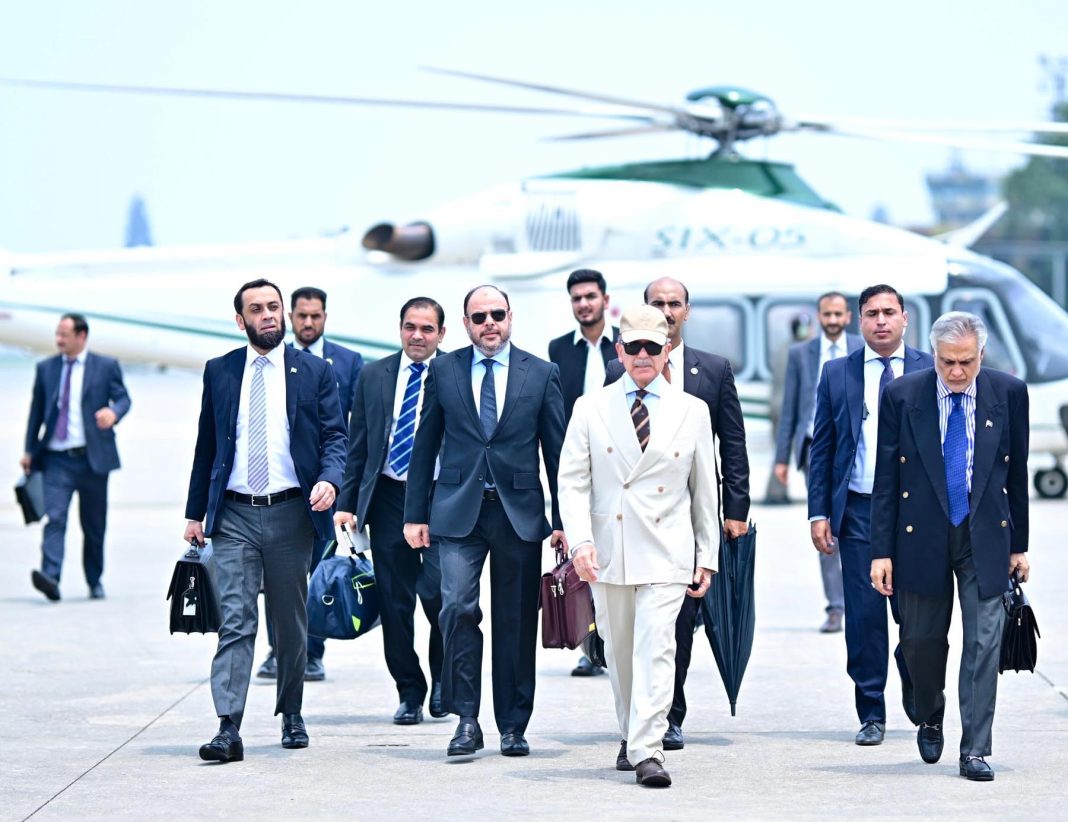
ISLAMABAD: Prime Minister Shehbaz Sharif arrived in Azerbaijan on Thursday for a two-day official visit to partici-pate in the 17th Summit of the Economic Cooperation Organization (ECO). The summit, being held in Khankendi from July 3 to 4 under the theme “New ECO Vision for a Sustain-able and Climate Resilient Future”, brings together heads of state and government from member countries to discuss pressing regional issues, including connectivity, trade, and climate change.
PM Shehbaz is accompanied by Deputy Prime Minister and Foreign Minister Ishaq Dar, Federal Infor-mation Minister Attaullah Tarar, and Special Assistant to the Prime Minister Tariq Fatemi, as he leads the Pakistani delegation.
Upon his arrival at Fuzuli International Airport, the prime minister was received by Azerbaijan’s Minis-ter of Culture Adil Karimli, Azerbaijan’s Ambassador to Pakistan Khazar Farhadov, Pakistan’s Ambassa-dor to Azerbaijan Qasim Moinuddin, and senior diplomatic and government officials.
According to the Foreign Office, the prime minister will address the summit, outlining Pakistan’s per-spective on key regional and global issues. He is expected to reaffirm Pakistan’s commitment to the ECO Vision 2025 and advocate for deeper intra-regional trade, enhanced transport connectivity, great-er energy cooperation, and sustainable development.
On the sidelines of the summit, Prime Minister Sharif is scheduled to hold bilateral meetings with leaders of ECO member states to discuss matters of mutual interest, with a focus on economic collabo-ration, climate resilience, and regional peace, the statement added.
The Economic Cooperation Organization traces its origins to the Regional Cooperation for Develop-ment (RCD), established in 1964. The ECO was formally launched in 1985 and currently comprises ten member states from South and Central Asia as well as the Middle East.
Pakistan has consistently voiced concern over the global climate crisis, highlighting its disproportionate vulnerability despite contributing less than one percent to global carbon emissions.
In recent years, Pakistan has experienced increasingly erratic weather patterns, rising temperatures, and accelerated glacial melt — all contributing to a rise in climate-related disasters.
The 2022 floods, which affected over 33 million people, claimed more than 1,700 lives, and caused damages and economic losses exceeding $30 billion, underscored the urgency of coordinated climate action.
The prime minister is expected to raise the issue of climate justice in his address, calling for stronger regional collaboration and international support for mitigation and adaptation efforts in climate-vulnerable countries. –Agencies





